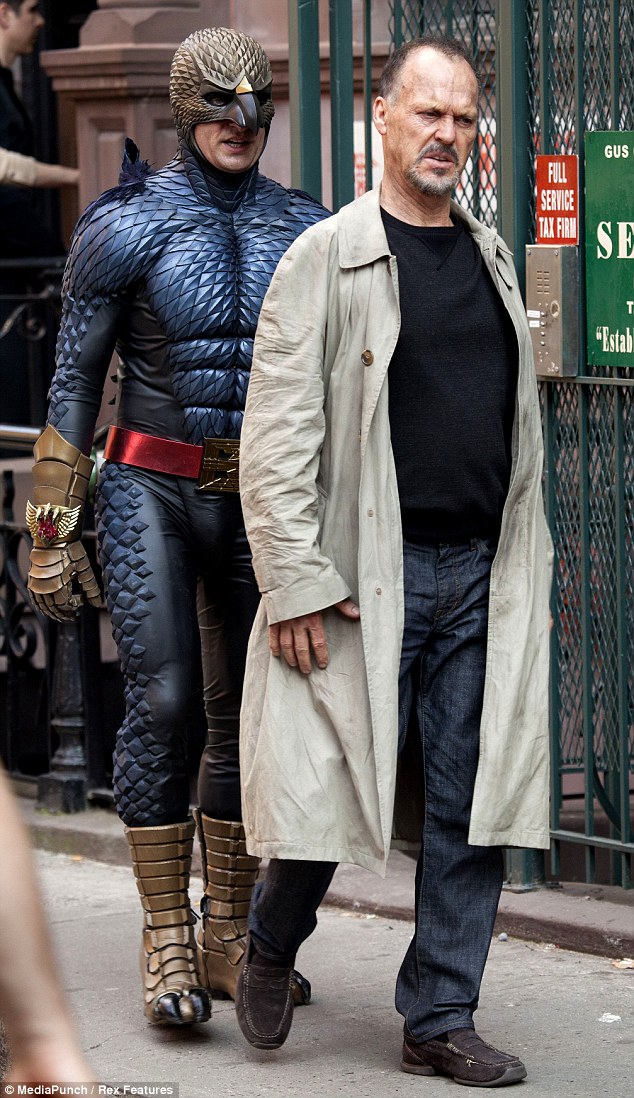 “Birdman” is being touted as one of the movies of the year. Certainly it is the best one by Alejandro G. Iñárritu since his 2000 feature, “Amores Perros.” Dizzying, stagy, and constantly on the move, this show-biz comedy turns all the director’s normal delusions of grandeur on their heads – and then levitates them. Literally. The film begins with a shot of Michael Keaton levitating in a dingy backstage dressing room.
“Birdman” is being touted as one of the movies of the year. Certainly it is the best one by Alejandro G. Iñárritu since his 2000 feature, “Amores Perros.” Dizzying, stagy, and constantly on the move, this show-biz comedy turns all the director’s normal delusions of grandeur on their heads – and then levitates them. Literally. The film begins with a shot of Michael Keaton levitating in a dingy backstage dressing room.
Keaton plays Riggan Thomson, a Hollywood has-been who made his fortune playing Birdman, a screen superhero remarkably like Batman, whom Keaton played twice in real life. On a quest for artistic credibility, Riggan is putting on his first Broadway production, and the film takes place entirely in Time Square’s St. James Theater in the days leading up to the show’s premiere. As director, star, and producer, Riggan is bearing what seems like the whole world upon his shoulders. His male lead (Edward Norton) is a viciously talented saboteur who’s dating his female lead (Naomi Watts) and ogling Riggan’s daughter (Emma Stone), an angry waif recently sprung from rehab. Another castmember (Andrea Riseborough) announces she’s pregnant with Riggan’s baby. Critics and moneymen are circling Riggan like vultures, and – speaking of vultures – Riggan can’t seem to shake the ghost of Birdman. Literally, of course. Such flourishes of magic realism are both funny and ominous, though we don’t get the time to determine what they presage. Instead, the film is shot in what seems like one breathless, un-ending take; we never stop racing up and down stairs, darting into murky rooms, and, on one occasion, flying out the theater’s back door and through city streets. (Riggan is naked when this takes place.)
Even when they’re not onstage, the actors are hilariously melodramatic, especially Watts and Norton. Both capable of great subtlety, here they are wonderfully (rather than tiresomely) full of themselves. We can say the same for Iñárritu. A director who often brings sanctimony to a whole new level, for once he seems unwilling to take things as seriously as his protagonists do. A winking hamminess has supplanted the phony naturalism that usually seeps through every frame of his films.
So what’s changed? Continue Reading →


